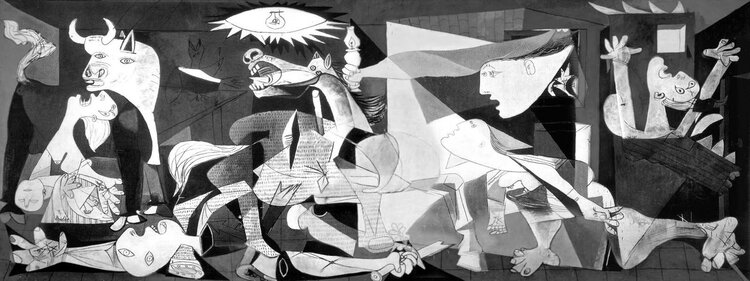Tag: Politics
-

Philosophy – “Why Surface-Level Diversity is Harmful” – 12/28/2023
“Outright contrasting two distinct types of diversity, being that of what we know nothing of and what we can know everything about, means that they have nothing to do with each other. Even so, we must think of the former kind as a barrier, though a needed one. While a needed one, it should also…
-

Political Philosophy – “A Problem with a Voting System” – 8/5/2022
“Whenever change gets promoted, it has to do with a wish to see all systems redone. Whenever improvement gets promoted, boredom sinks itself into a voter’s mind, because what a voter votes for will be for entertainment and amusement of getting what they want.” – Modern Romanticism Change promotes chaos, or idealism. Improvement promotes order,…
-
Quote – “The Difference Between a Politician and a Leader” – 8/4/2022
“A politician knows their books. To be a politician, one must be expected to hold experience. Experience with what? Well, all experience amounts to one thing only: deceptive handiwork. While we learn, we wish to learn more. A craving for something like knowledge becomes a trait for masochism, when satisfaction remains unreachable. Although, for leadership,…
-
Political Quote – “A Backwards-Styled Thinking on Minority Rights” – 6/1/2022
“Whoever claims to be in support of minority rights must also be in support of individual rights. Any greater-in-number minority supported, over an individual, becomes a support of a majority over a minority. If one cannot support an individual right, such as a right to bear arms, one can be disqualified of their credibility to…
-

Philosophy – “A Problem with having Choice” – 5/14/2022
“Some argue that choice can be all one needs. Wherever has been an argument to tell everyone that when it comes to doing right, there can be no choice? A choice often falls into a realm, belonging to excuse. Excuse. Escapism. Or a wish to be free, without earning freedom. A desire to rest, while…
-

On Hate – Pt. 1 – “Hatred in Crime” – Philosophy – 4/30/2022
“A concept as hate, as it is a concept, so rare that it belongs to a vendetta, reflects our judgement to it as if all knew each other. Do murderers always know their victims? If so, there would be nothing to fear. Do soldiers come to know their enemies? If so, they’d have less to…
-
Quote – “The Real Meaning Behind Anti-Science” – 4/5/2022
“Anti-science: universally agreeing with science. When a politician will say, ‘follow the science’, they won’t be for science, because that politician is telling you to agree with the science, without ever questioning the legitimacy behind the data. When the scientific method must require falsifiability for itself to be disprovable, then it is science. And when…
-

Philosophy – “Why Politics Dulls Entertainment” – 3/28/2022
“If anything structured to benefit the short-term is believed able to prolong itself to create the future, the future will be dark. Nothing that, for its place inside addiction in a short-term high, can create when creation is a space of something remembered. If anything is beneficial for the short-term, it will be forgotten. It…
-
Politics – “Biden – the Face of Weak Leadership” – 2/24/2022
“When character is neglected for its objective value, then no matter the title to the leadership position, leadership, itself, becomes ruined.” – Modern Romanticism The definition of leadership is not meant to be subjective. Although, some fools will take the meaning of a thing that it defines itself to whatever a person says it means.…
-
Philosophy – “The Purpose of a Polarity” – 2/15/2022
“Are we meaning to make more than what simply is, being the vastness of one subject or the landscape of different views of those meant or should be given light? There is a necessity to a divide. It comes during an era of complexity. Boundless complications require their simplification. If simplification wasn’t a response to…
-

Philosophy – “Why Progress does not Adhere to Accountability” – 1/11/2022
“To look upon the ruined castle or the Greek pillar, to then state, ‘Why has it become that way?’ and you should put blame on the word ‘change’. Progress is change. Progress suits a singular person’s vision. It is not improvement, this progress. It is merely the change to the world’s colors. A kaleidoscope that…
